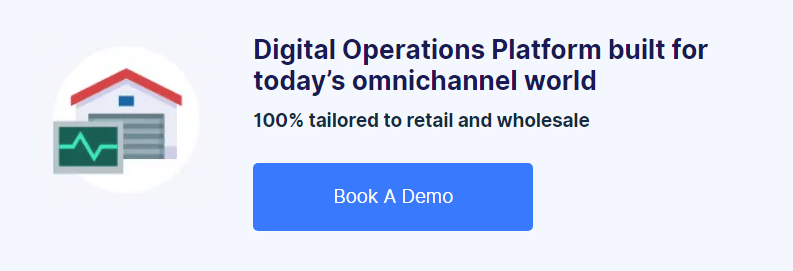Website Credibility and Blogger Outreach

Introduction
Users of the internet are now able to make quick decisions on whether they have landed on a website that is legit and trustworthy. Making your new visitor feel comfortable enough to buy from your website is the main objective of building on-site trust. If a new visitor to your website cannot find a reason to trust you, they will go elsewhere and spend a little extra money on the same product or service with a company they know. By now, most businesses will have understood the need to claim their voices on Twitter and Facebook. This is all good and grand but it sits in a very closed environment. People do not search on Facebook or Twitter before buying a product, they search on Google, Yahoo or Bing.
Written by Kevin Dixie, Managing Director of Fuelmywebsite, one of the largest blogging communities on the web with over 60,000 bloggers. They enable small and medium businesses to gain independent quality reviews which help with trust, search and sales.
What is on-site trust?
The main objective of building on-site trust is to make your visitor feel comfortable enough to take action, for example, make a purchase or download a brochure.
Consumers are increasingly checking search engines in order to get extra background on businesses before making a buying decision. This is especially true for e-commerce websites and lesser known brands. Potential new customers want the reassurance that the site is trustworthy, that other customers have bought from it and, most importantly, that the product will arrive.
There are many different ways to increase on-site trust and this eBook explains how.
Different ways to build on-site trust
Web Design
The single and biggest turn-off when landing on a new website is bad design. Bad web design can really turn people off in a second without even giving your content or your offer a chance.
Ask yourself, how many websites did you visit in the last month alone, just to hit the back button because it had terrible design? You are not alone. Design is king. Take a look at Apple.
Does your website look modern, do all the functions work, is every page populated ie no “coming soon” pages… If you answer no to any of those, invest a little time or money now.
We Are Human
People like associating themselves and doing business with other people, not with companies. This is why immediately showcasing that human factor on a site is essential. There are a number of ways of doing this.
Perhaps you’ll have a ‘live chat’ box that pops up after a certain amount of time is spent on a page. Or adding a Facebook ‘Like widget’ to show that you have a number of fans is a great way, as is showing a Twitter status update feed.
Maybe the best way is to showcase the team. Adding links to their own Twitter feeds or LinkedIn profiles will help prove you are a real contactable team.
Having an about us page that explains your history will help to establish you as brand that can be trusted to still be trading in a week or months’ time. People buying online need to be able to trust that you will be around to help them with any issues later down the line.
Having physical address and contact us section will reassure them they can speak to an actual human being too and get any problems resolved in person.
Media Coverage
If you’ve ever had any coverage in the local newspaper or even in the National press, showing the logo’s and linking to the coverage (where possible) on your homepage is a must. The association between your brand with well-known publications tell people these media sources consider you an expert in the field and they have trusted you with their audiences.
Familiarity is one of the strongest aspects of communicating trust. It helps eliminate uncertainty. This is why it’s extremely important that you use logos of brands that are recognizable whether to your local audience or a National one.
Social Proof
This type of social proof happens when your actual clients and customers talk about your product or service. Here are types of proof within this category:
Testimonials
Testimonials should be visually present and easy to navigate to. Trusting a testimonial is really important. Simply having a page with a list of comments saying things like “I love this chair!” – Terry from London is not enough to build instant trust. A customer must be able to verify that the testimony is real.
Product Reviews
Product reviews work because they are a word-ofmouth engine and people know they are written by real users. If you sell products on your site, reviews are a must. According to YouGov, 75% of purchases (made on and offline) are made after looking at reviews.
Reviews that are relevant can single-handedly drive trust and help users feel comfortable enough to take action on your site
A US based company called People Claim recently ran some research; here are some of the key points:
- 75% of reviews posted on websites are positive
- 71% agree that product reviews make them comfortable about buying a product
- 41% say they read 4 to 7 reviews before feeling comfortable about a purchase decision
- 63% are more likely to buy from a website with reviews and ratings
- Customer reviews increase product conversion by 74%
Bad Reviews or Comments
Anybody can have a bad review online, what matters is how you handle it. If you deleteor ignore anything negative said about your company, you are wasting a great opportunity to make somebody happy and let others see how committed you are to that happiness. Treat people online in the same way as you would if they visited you with a complaint.
Blogger Outreach
Blogs are Trustworthy
There are millions of people blogging daily or weekly about all manner of issues. They blog about their favourite technology, cars, food and some even blog about what they wear every day. These bloggers have an online voice, in an open environment, their findings can influence the buying decisions of their readers and the rich content of their blogs is like honey to a bear for search engines.
So how does your business look to a new customer? In this digital age, people will almost always firstly buy from recommendations from friends or family, failing that they look to Google and will search for a brand.
If your business has no-one talking about it, how will a new customer landing on your website be able to determine that you are what you say you are?
In the eyes of a new visitor, you could be anyone. Having bloggers talk about you not only enables initial coverage to their readers, it also helps the search engines position the reviews alongside your website. New customers can even leave a comment on the blog review and actually ask for a recommendation, why, how or what.
Importantly, by having these customer reviews and real testimonials linked from your homepage on your website any new visitor will have what they need to be able to make that quick decision required with trusting your brand. This will help with converting visitors to customers. Here’s one of ours:
“As a company we are always looking at innovation in our products and how we engage with our customers. I have my own blog and immediately saw the potential of the Fuelmywebsite campaign. The feedback we have had on the blogs involved has been terrific.”
– Will King, Founder of King of Shaves
Not only that but Google sees these blogs as trustworthy too. They are generating a lot of unique and highly related content to your products. You can therefore piggyback on a bloggers success in the search rankings. When they link back to your products Google see this as a vote or recommendation for that page and therefore you’ll get a boost in the search rankings.
Consumers are suspicious of adverts
75% of people don’t accept advertisements as truth but 90% of people believe brand recommendations from friends.
There is the risk of banner blindness with online adverts. There is evidence to suggest that visitors to websites purposely ignore adverts. They do not want to be sold too and therefore immediately disregard anything that they have learned will be doing just that. This is the opposite in the case of bloggers. Bloggers often take on the voice of virtual friends; people associate them with giving advice and recommendations and therefore listen to what they have to say. Your strategy has a lot to gain from blogger advocacy including added credibility for your content and communications.

